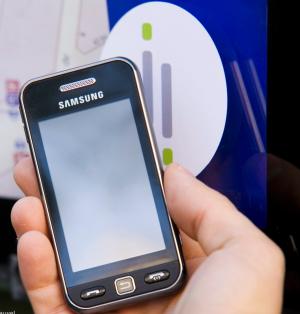French Government to Offer Up to €20 million in NFC Funding for Cities

The French government has announced it will offer up to €20 million (US$28.6 million) to French cities and other local agencies to assist them in rolling out NFC services.
The money will help large cities and authorities in France to pay for costs to deploy such applications as NFC transit ticketing and parking fare collection, along with other public services, such as controlling access to public buildings and schools and tag-reading in museums and at tourist sites. The money will go for a total 20 to 30 projects, and cities apparently can apply for more than one project. They have to declare their intent to apply for the funding by July 1.
The amount of total funding depends on the quality of requests the government receives. The French Ministry for Economy, Finance and Industry and office of the commissioner of general investment are leading in the program.
The French government, in general, has taken an active role in supporting NFC.
For example, Éric Besson, minister of industry, energy and the digital economy, in January announced government support for nine cities to pilot NFC, or “Cityzi” services, as the French call it, including Nice, where multiple mobile operators and service providers have been trialing the technology since May of 2010. The new pilot cities include Paris, Marseille and Toulouse, but only smaller cities Strasbourg and Caen are expected to launch pilots this year.
The pilot cities would likely be frontrunners to receive additional funding out of the possible pot of €20 million.
The government believes France can become a global leader in NFC technology. Several French companies, including Gemalto and Inside Secure, supply NFC technology in France and abroad. The government wants to showcase the French technology internationally.
The Nice project is a “dress rehearsal,” for both the technology and business side of NFC, and now the government hopes to encourage the “widespread deployment of these services,” said Besson in a statement. He is the top government official promoting NFC.
Besides key technology suppliers based on French soil, French mobile operators and service providers have been at the forefront of setting standards for interoperable NFC services. Some of those standards for mobile payment are being adopted by international card schemes, Visa and MasterCard Worldwide.
French operators were the first telcos to state a goal for distribution of NFC handsets, led by France Telecom-Orange, which late last year said it would sell 500,000 phones by the end of 2011. France's other two major operators, SFR and Bouygues Telecom, later predicted they would also sell a combined 500,000, for a total goal of 1 million NFC handsets sold this year in France by the three telcos.
But with late shipments by handset makers of NFC phones, especially those that support NFC applications on SIM cards, which the French telcos are seeking to buy, it is looking increasingly unlikely the operators will hit their goal.
“We will get to those numbers; it's a question of when,” Anne Bouverot, executive vice president for mobile services at France Telecom-Orange group, told NFC Times last week. She said Orange probably wouldn't hit its 500,000-phone goal until early next year. The same is probably true for SFR and Bouygues.
In addition, France’s influence on NFC internationally is waning, with big U.S.-based IT companies, such as Google, and later, Microsoft and perhaps Apple, expected to play a major role in determining how the technology is rolled out.
For its latest initiative, the French government plans to fund projects in metropolitan areas with at least 200,000 residents each.
The funding would not be available to subsidize NFC phones for users or directly to roll out retail payment applications, which involve banks and merchants in the private sector.
The money, for example, could include funds to help pay for equipment, such as transit terminals and tags, along with application development and administrative costs for rolling out bus and train ticketing, parking-fare collection and bicycle and car sharing. The infrastructure could be used by NFC phones and contactless cards.
The money also could fund equipment and development of applications for enabling citizens or employees to access public buildings, such as recreational facilities, and to get information by tapping their phones on tags at monuments and other tourist sites.












